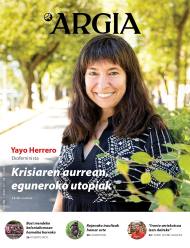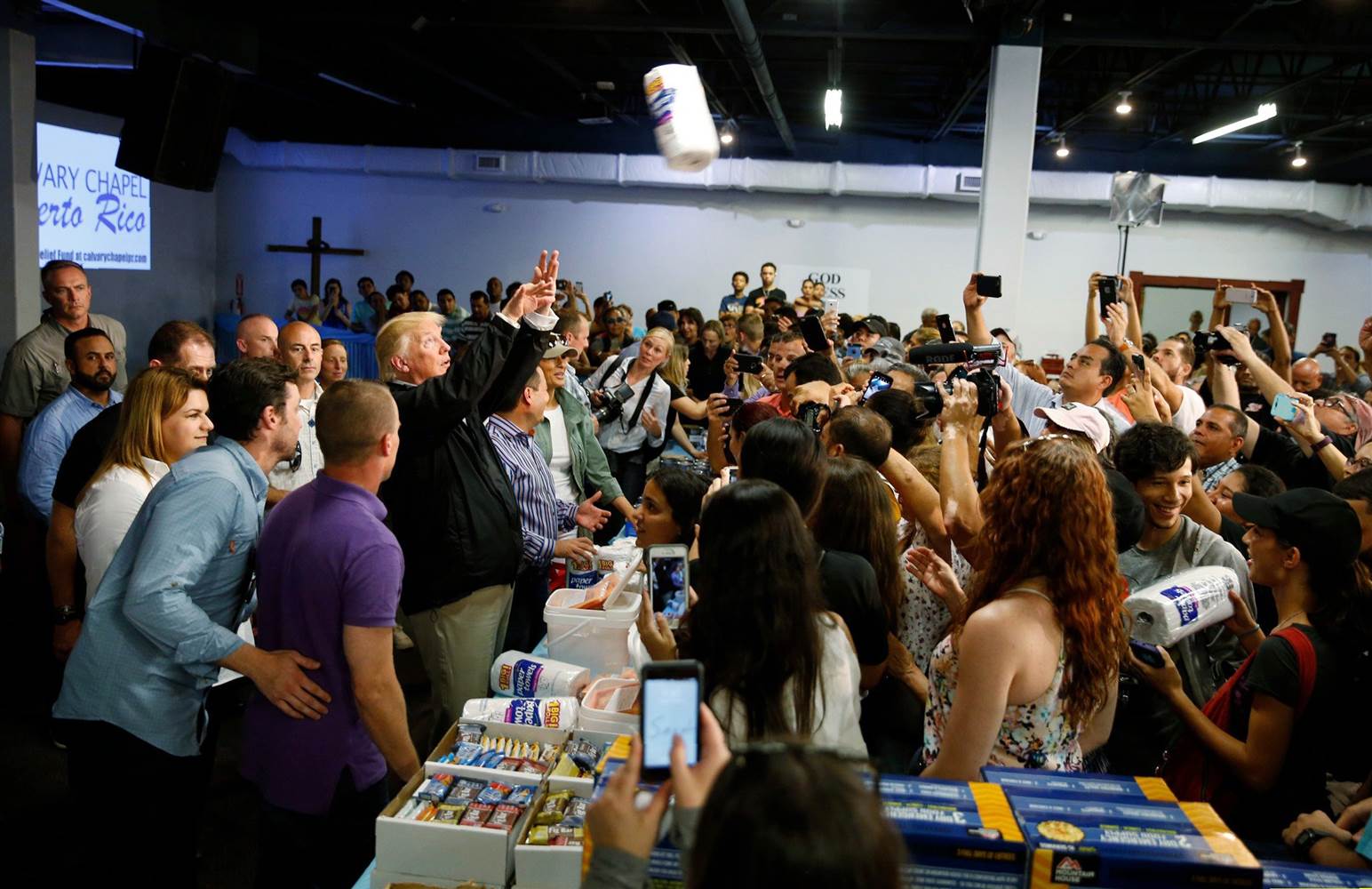The cry of the oldest colony in history
- The inhabitants of the island of the Caribbean have endured all kinds of oppression for five centuries: From being a Spanish colony, they became a North American colony 124 years ago, on July 25. However, Puerto Ricans have never been silent and have been able to fight addiction. Despite the fact that many of these struggles have been rendered incapable, they have also achieved significant victories, such as that of July 25, 2019: almost a third of the island mobilized against governor Ricardo Roselló, who managed to cast him out of power. It is therefore clear that July 25 is a date to remember in the complex history of Puerto Rico.

In July of three years ago, Puerto Rico, known in Borink before the arrival of the Spanish settlers, had a great international prestige, mainly due to the protests against the then governor, Ricardo Roselló, of singers known as Resident, Bad Bunny and Ricky Martín. For two weeks, thousands of citizens filled their streets screaming and singing “Ricky uko” (Ricky, resignation). Few will know this facet of Bad Bunny, but so he sang in the streets of the capital of San Juan Afilando cuhillos with Resident and iLe: “Tear out the karajo eta vete urruti, eta neoyera ez naiz dejo, ongi etorri”. (Go to hell, go away and welcome the generation that does not lean.) Far not, but they sent him.
In fact, the “non-leaning generation” had for years been criticizing the action of the government of the New Progressive Party PNP, until everything broke out on July 13, 2019. The independent media of the Puerto Rico Investigative Journalism Center filtered a long Telegram conversation between Roselló and other voting men. They were all sorts of misogynistic, homophobic and discriminatory messages that were laughing at the expense of politicians, artists and citizens of the island, and those who died in 2017 as a result of Hurricane Maria. It is noteworthy that a study by Harvard University estimated the deaths of 4,645 people as a result of this hurricane, among other causes, of the poor management of the island government and the United States, presided over by Donald Trump.
In addition, three days before the messages were filtered, investigations were conducted against several government members accused of corruption. Puerto Ricans considered the facts abusive and went to the streets to expel the governor. On July 22, the entire country was paralyzed and, according to local media, nearly one million people gathered in the capital with flags from both Puerto Rico and the LGTBI+ group. People from different ideologies and ages who arrived at the governor's headquarters were gathered walking, cycling, driving or pirate. They then celebrated Roselló’s resignation, but three years later the PNP remains in power and corruption has not disappeared. Well, this year they have also organised a number of activities on the occasion of the anniversary, but it is difficult to repeat it.
They then welcomed the resignation of Governor Roselló, but three years later the PNP remains in power and corruption has not disappeared.
Voice yes, rights no
On July 25, 1898, Spain "lost" the island in the war against the United States, and 54 years later, on July 25, 1952, Puerto Rico became the United States Associated Free State (ELA), and the United Nations Organization decided that it gave them sufficient autonomy and, therefore, left the list of colonies. Celebrate it. But the reality is very different. They have an autonomous government, they have their choice in sports, but there has never been a decolonization process, and having ALS has given them more obligations than competencies. In short, it remains the US colony, and the Puerto Rican government is nothing more than a puppet from Washington. The situation is complex, but in short, the Boricus (Puerto Rican citizens) have U.S. citizenship and its president is Joe Biden, but are not entitled to participate in the elections. Puerto Ricans have a voice but no vote spokesperson in the US House of Delegates. Curiously, some will recall that in 2003 the Ibarretxe Plan proposed some characteristics of the Puerto Rico model for the Basque Country.
They also have the so-called Jones law or cabotage law, which obliges them to have all the boats that travel to Puerto Rico come from the United States and greatly increase import prices. According to Amnesty International, 47 per cent of the population lives in poverty. The crisis is profound and varied: economic (highly dependent on other territories), climate (with hurricanes and increasingly severe earthquakes), political (predominantly corruption) and social (poverty, violence, feminicides and drug use). Puerto Rican writer and journalist Ana Teresa Toro recalls that colonial character is what prevents them from advancing: “Colonies are not places that advance or flourish; colonies are places that bring things out, where there is explicit and implicit violence.”

Do not want PROMISES
Another law that highlights the colonial character is the PROMISE (Puerto Rico Oversight, Management and Economic Stability Act), launched in 2016 by the Barack Obama administration, to “manage the economic crisis” of the island of the Caribbean. That is, Puerto Rico was in economic bankruptcy, unable to pay a debt of about 66,000 million euros, and from Washington they decided to send a federal Fiscal Control Commission that has more powers and powers in the country’s economy than the government and parliament of Puerto Rico. The tax plan is in place until 2026 and various agents on the island have denounced the cutbacks that people are suffering under the PROMISE, especially in education.
Voices have been raised against the “imposition” of the Control Commission and, among other things, they have denounced that the consequences of government corruption for many years are now paid by citizens. The promises (the promises made) have ended in the independence group. That summer of 2019, also with the slogan “the promises have ended”, raised the black and white versions of the Puerto Rico flag, which have become anti-law symbols and colonization of the PROMESA.En
September 2017 hurricanes Irma and Mary destroyed the island and those who did not lose the house lost light, many of them for months. For these strong winds also brought new winds to the island, and the Puerto Ricans showed a show of collaboration and organization that arose through the work of the local community. Not only that, but the complaints they then made to the government and the US were maintained, and many continue. According to experts and analysts from Puerto Rico, the launch of Roselló in 2019 did not occur from day to day, but was the result of a series of struggles, including those of the university students, who were on fire in recent years. They lit the bristles in the absence of light and ended up breaking fire.
Change times
When the governor was forced to leave office, messages of hope, of change were broadcast, reflecting the general elections of November 2020. Ramón Rosario Luna, professor at the Public University of Puerto Rico, defined them as “anti-neoliberalism forces” in the analysis made in the digital newspaper 80 degrees. A loss of strength of liberalist bipartisanship (PNP and PPD) was observed until then. Pedro Pierlusi, of the New Progressive Party PNP, won the votes, but he is the least voted governor in history, who rules in a minority in Parliament. The second force is the Democratic People’s Party PPD, but with fewer votes in the party’s history. Conversely, the Popular Triumph Movement MVC (created after the protests of 2019) and the Puerto Rican Independence Party PIP (from 2% in 2016 to 13% in 2020) significantly increased votes in favour of leftist and anti-colonialist formations. However, in Parliament and in the Senate, the CVS have two representatives and the PIP only one.
President of Puerto Ricans is Joe Biden, but they have no right to participate in the elections
We must not forget the low turnout. Participation in all recent times was around 80%, and in the last two the decline has been evident: In 2016 it was 55.45% and in 2020 it was 55.02%.
In addition, votes have shown another trend in social movements: voices for independence have gained support. In fact, as a colony in the United States, three main positions are distinguished: those who want to continue with the current Associate Free State (ELA) model (represented by the PPD), statesmen who want to fully integrate into the United States and become State 51 (represented by the governing PNP) and those who want independence (such as MVC and PIP). The statesmen are certainly the ones with the most strength and the minority are the defenders of independence.
Non-binding referendum
The Government of Puerto Rico has conducted several non-binding referendums on the autonomy of the country. The choice of ALS was imposed in the plebiscites made in 1967, 1993 and 1998. In 2012, the option of becoming 51 states for the first time won with the support of about 60% of voters, while independence only reached 5%. Five years later, in 2017, a new survey was conducted, but the independentists and ELA supporters called the boycott “absurd”, with a 23% stake. Consequently, 97% voted in favour of the State. Finally, a new attempt was made in 2020, offering only two options: “The stay yes or no?” Turnout was 54.72 per cent and 52.5 per cent of the voters was affirmative and 47.5 per cent negative. However, referendums are not binding and EE.UU. has shown little interest in resolving the issue. Should you consider an impoverished territory as Puerto Rico as the 51 State? What if not, completely liberate the territory that offers them simple and economic advantages? At the moment, Washington seems to be intending to reach the status quo.
Calls for independence
They have been dependent for more than five centuries but have not been docile. They have also fought the settlers, both Spanish and American. The first attempt at independence was the Mercedes Cry, armed uprising against the Spanish empire in 1868. The revolution was starred by a group of at least 400 people, who proclaimed the Republic of Puerto Rico, with the first installation of the Boricua flag, on which the current flag was built. However, the Spaniards repressed the attempt and took about 800 “suspects”.
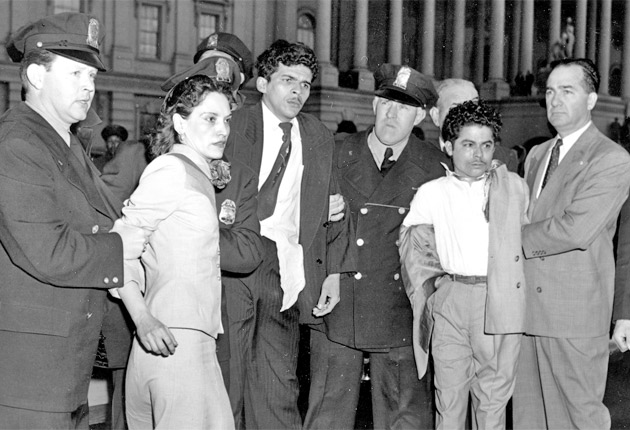
The struggle for independence in the last century took on new strength, along with the struggle for the working class, which was driven by Pedro Albizu. Starting in the 1930s, the US government resorted to repression of nationalism: persecution of militants and politicians, incarceration and even murder. For example, in 1937 the Ponce Massacre was held on behalf of the United States Government: the police killed 20 nationalists in the southern town of the island. In 1948, he was legally sanctioned with the defense of independence, also called the Mozal Law, and, among other things, Albizu was again imprisoned. The US Police spied on thousands of people and collected their information in folders because they were “suspected” of boosting independence, and so far the practice called “carpeting” has been maintained.
In 1950 there was a new uprising: Scream of Jayuya. The militant Blanca Canales proclaimed the Republic of Puerto Rico in this mountain village of the island, and made public for the first time what we now know as the flag of the country (it was banned for many years). Following a shooting between police and militants, he killed many wounded and three independentists, condemning detainees to long prison terms. Another frustrated attempt in the history of independence.
They believed that the Associated Free State would serve to calm the waters, but they were very wrong. Two years later, four ALS denunciation and decolonization activists entered the United States Congress with weapons and attacked. There were no deaths, but the militants received long prison sentences. Faced with repression, they made a new leap in the 1970 capture, and the defenders of independence and socialism were organized into armed groups: The Macheteros (People ' s Army Boricua) and FALN (Armed Forces for National Liberation). They carried out numerous acts and killed several people in the name of the liberation of Borinken. Oscar López Rivera has been, among others, one of the most internationally recognized characters of the FALN. He spent 35 years in prison until Barack Obama pardoned him in 2017, when Lopez was 74 years old. Shortly after leaving prison he sent a message of solidarity to the Basque political prisoners.
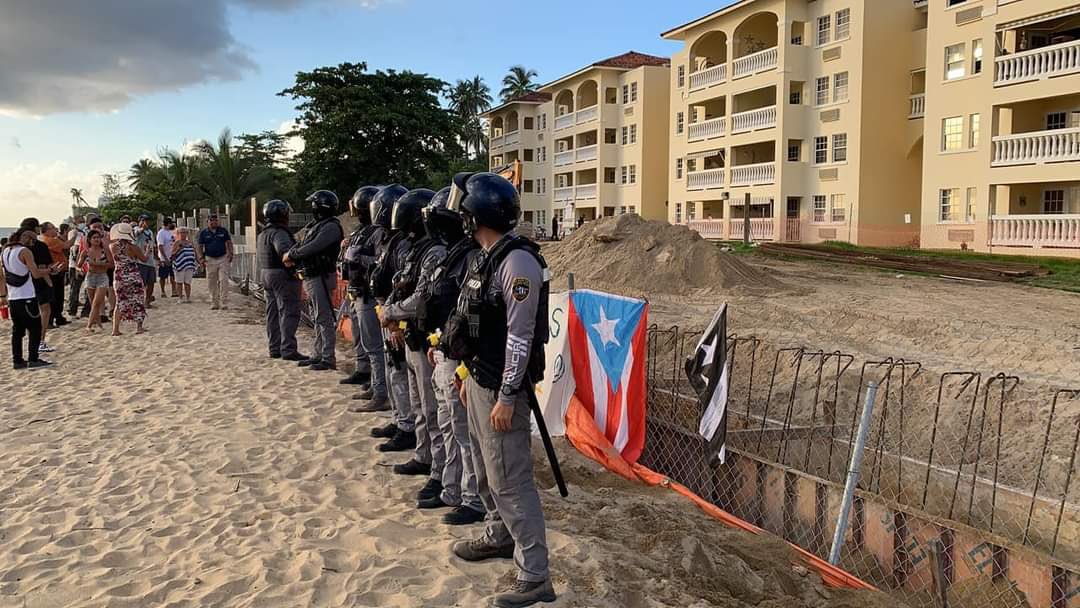
Eleven claims
The Puerto Rican struggle continues and the streets are alive. Summer 2019 served to revitalize and, divided into eleven groups, citizens continue to fight for the oppression of the oldest colony in history. In the last year, in general, they are facing the privatization of education, health, energy and land. In fact, the electric power of the island was transferred to the private company LUMA in June 2021 and citizens disagree. In education, higher education is in the hands of fewer and fewer pockets. As for the privatization of land, the main complaint of the population is that beaches are being privatized, because these public lands are buying businesses for tourism, which have occupied more than one beach over the past year by activists.
The message that is spreading “a generation that does not lean” is anti-colonialist and reminds American and European entrepreneurs who go to the island for cheap business. Because what for some is the holiday paradise of the Caribbean, for others is a daily place that, as a consequence of the crisis, has increasing difficulties of habitability.
Resident sings in his song Sons of Cañaveral, in tribute to his people: “Ez do dago inor quite/ Because more snow than you, here the snow melts” (There is no one who takes us off our/ Because despite the snow being cast here the snow melts). “Although they sow the roots as they please/ The guanabana sticks don’t give apples.”
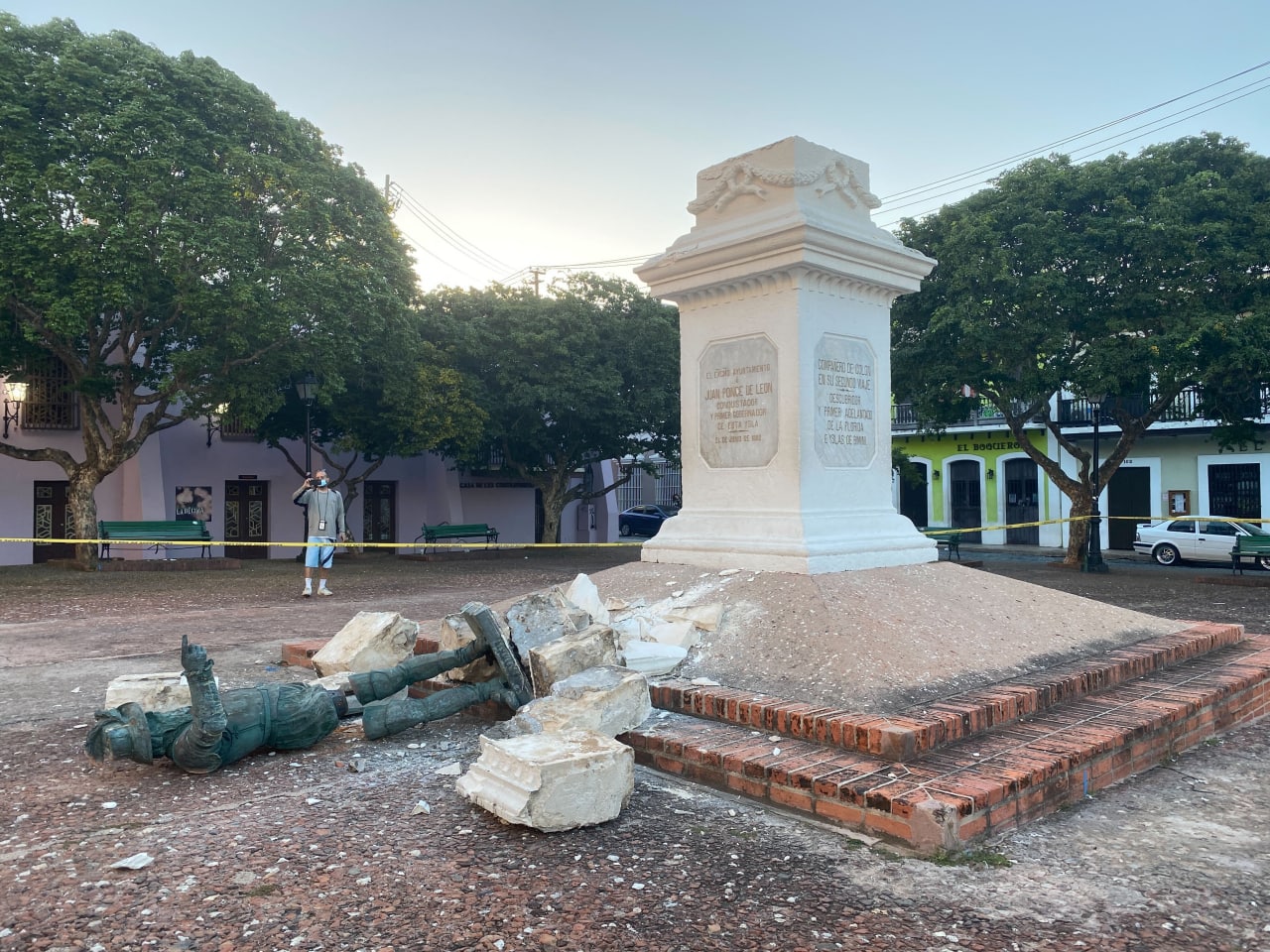
Who is the Boricua?
Puerto Rico is a small island in the Caribbean with an area of 9,104 square kilometers (Navarra Alta has 10,391 square kilometers). According to 2020 data, 3,285,874 Boricua live there. But another 6 million live in the diaspora. Most migrate to the United States fleeing island poverty. Over the past decade, 75,000 people have left their home city, according to a UCLA study.
It is difficult to identify a Boricua because of its appearance, as they have suffered great confusion over the years. Blacks, whites and mestizos: speak Spanish, English or mix of both, with a special melody of the island. The country of origin is a tacit people, and they named Borink to the territory, hence the word Boricua. However, in 1493 Christopher Columbus and other invaders came to dismantle this culture, which was declared St. John the Baptist Island.
It was first established in Juan Ponce de León in 1508, and was appointed first governor by the Spaniards. In fact, this year some activists have torn down the statue of this conqueror from the plaza of the capital to claim the liberation of Puerto Rico by the visit of King Philip VI of Spain. He takes control over the island, leaving Agüeybana the largest cacique, and begins to master the tainos. The indigenous people were dying, mainly due to the diseases that the Spaniards carried. The survivors were confused with the Spaniards, and according to the experts, there was a process of assimilation. They removed the Taino language. In the absence of indigenous people, Africa began to transfer people considered as slaves to the island. They also brought their culture to Borinken, and centuries later, Americans left their mark. That is why it is said that the current boricus is the fruit of the mixture of all. Children of the oldest colony in history.
Ekintzaileek salatu dute Puerto Rico “inbaditzen” ari direla. Felipe VI. erregea irlan izan da, San Juan hiriburuaren sorreraren bosgarren mendeurrenaren ospakizun ekitaldietan; Ponce de Leon Espainiako konkistatzaile eta genozidak eraiki zuen hiria, 1521ean. Puerto... [+]









